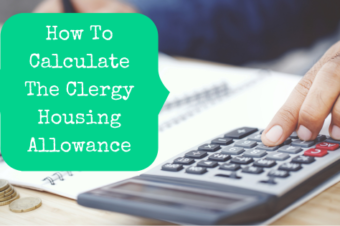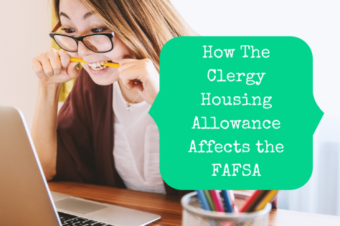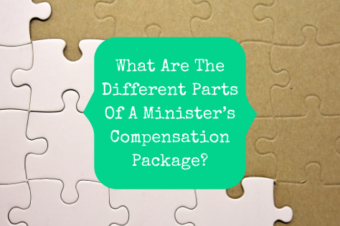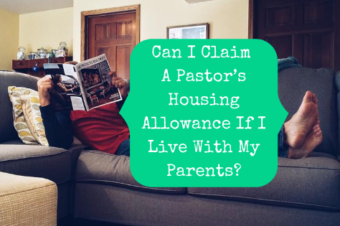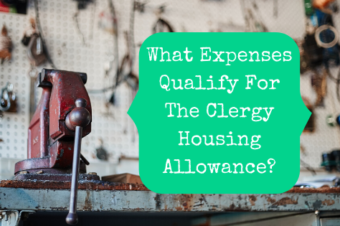Here we are again, wrapping up another year. I’ve made a tradition of using the last post of the year to look back and see which articles were the most popular so that you can go back and read them if you missed them. (Just click the title to read each article.)
This year’s articles ranged the spectrum from side hustles to taxes and, of course, the housing allowance. Ranked according to the number of views over the past year, these are the most popular articles of 2019:
1. Secular Jobs For Pastors: 9 In-Demand Skills You Already Have
This article was in third place in 2018 but has gained the lead with nearly 3,000 more views than its closest competitor. It describes the different skills that most pastors have and how they can be communicated in a way that the secular world will understand.
This is great for any pastor looking to create a resume for a secular position. As a pastor, you have a lot of highly desirable skills but you’ll never make it to an interview if they aren’t communicated clearly in your resume.
2. Business Ideas For Pastors That Want To Make Extra Money
This second-place article addresses the same needs as the first, except it is for those who want to start their own business instead of getting a more traditional job. It covers 15 different options that you can do on your own with little startup costs and that can work around your church’s schedule.
3. Are Pastors Eligible For Public Service Loan Forgiveness?
Americans, nearly ⅙ of the adult population, owe a total of $1.5 trillion in student loans. And, thanks to the cost of seminary tuition and low pay of entry-level ministry jobs, many pastors are among them. The federal government created the Public Service Loan Forgiveness Program to help those who are dedicating their careers to the greater good. This article covers how and when a pastor can be eligible to have their student debt forgiven under this program.
4. Why Don’t Churches Pay Payroll Taxes For Ministers?
There is a lot of confusion surrounding how taxes apply to churches and pastors. One of the things that makes a pastor’s taxes so unique is the fact that churches aren’t allowed to pay payroll taxes for pastors. This article explains why that is and how it affects you.
5. Are Pastors Eligible For The 20% Qualified Business Income Deduction?
One thing that came out of the Tax Cuts & Jobs Act of 2017 was a 20% deduction for small businesses and self-employed individuals. Since many pastors actually file taxes as if they were self-employed, this could be a big tax break for them. This article explains the law in detail, when it applies to pastors, and how a pastor can take the deduction.
6. How The Final Tax Bill Affects Pastors
Speaking of the Tax Cuts & Jobs Act, this article explaining how it affects pastors still made the top 10 two years after it was written. If you want to know the changes that affect you without having to wade through boring legislation, then this is the article for you.
7. How Medicare Works For Pastors Who Have Opted Out Of Social Security
Did you know that part of your payroll taxes covers the cost of Social Security? So, if you have opted out of Social Security you are not paying Medicare taxes either. This can create a lot of confusion once you hit 65 and need to enroll in Medicare. This article explains Medicare eligibility and the effects of opting out on how much it costs.
8. Can Pastors Opt Back Into Social Security?
Speaking of opting out of Social Security, some pastors do so and then regret it. Is it possible to change your mind? This article answers that question (NO) and discusses other ways that pastors have of obtaining Social Security benefits.
9. How To Get The Most Value Out Of Your Housing Allowance
The housing allowance is a great tax benefit for pastors and the next three articles all relate to it. This article answers all of the main questions you’ve had about the housing allowance in a Q&A format.
10. It’s Time To Submit Your 2019 Housing Allowance!
Rounding out the top 10 is another housing allowance article. This one goes into detail on all of the things you need to take into consideration as you calculate your housing needs and request a housing allowance for the coming year. Even though it says 2019 in the title, everything in it applies to your 2020 housing allowance as well.
Honorable Mention: How To Take A Ministerial Housing Allowance In Retirement
This article just missed the top 10, but I decided to include it anyway because I think it has very important information for all pastors. The housing allowance is a great tax benefit that you can even carry into retirement. However, common financial planning advice can actually mess this up for pastors and forfeit their chances of tax-exempt housing in retirement. This article explains what common advice needs to be ignored and how to take a housing allowance in retirement.
What do you think? Is there something that you think should have made it onto the list? If you have an idea for an article that you would like to see in 2020, let me know!









